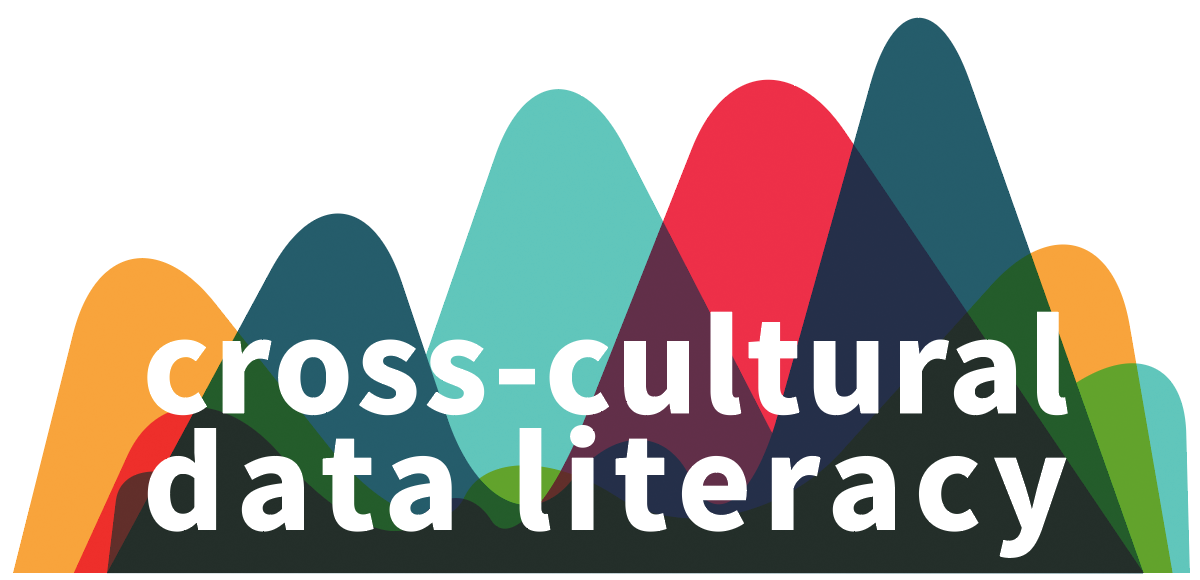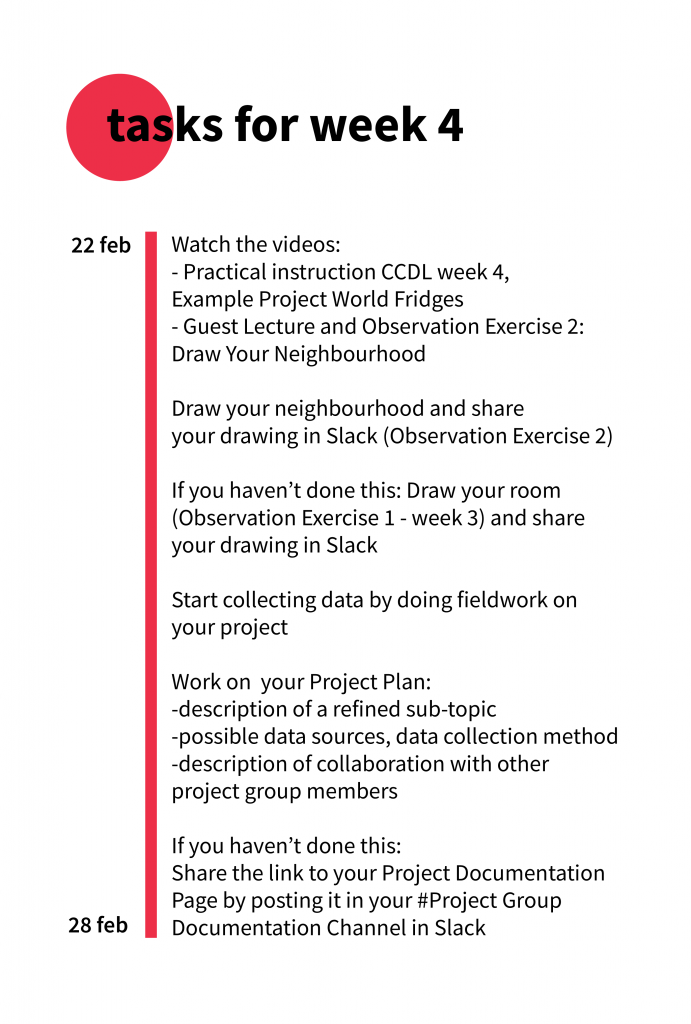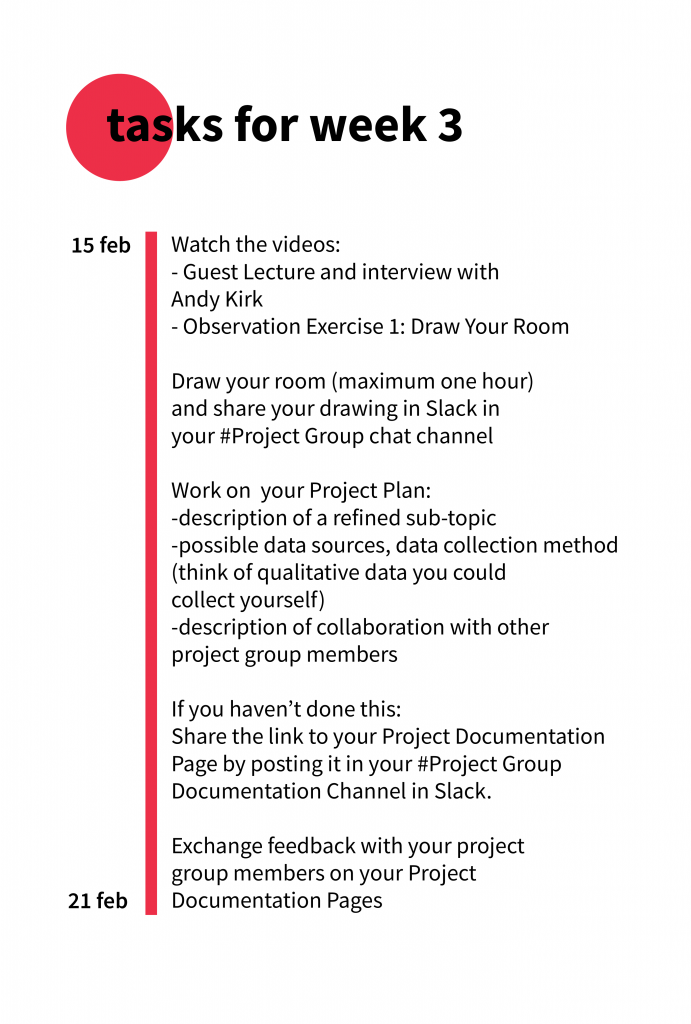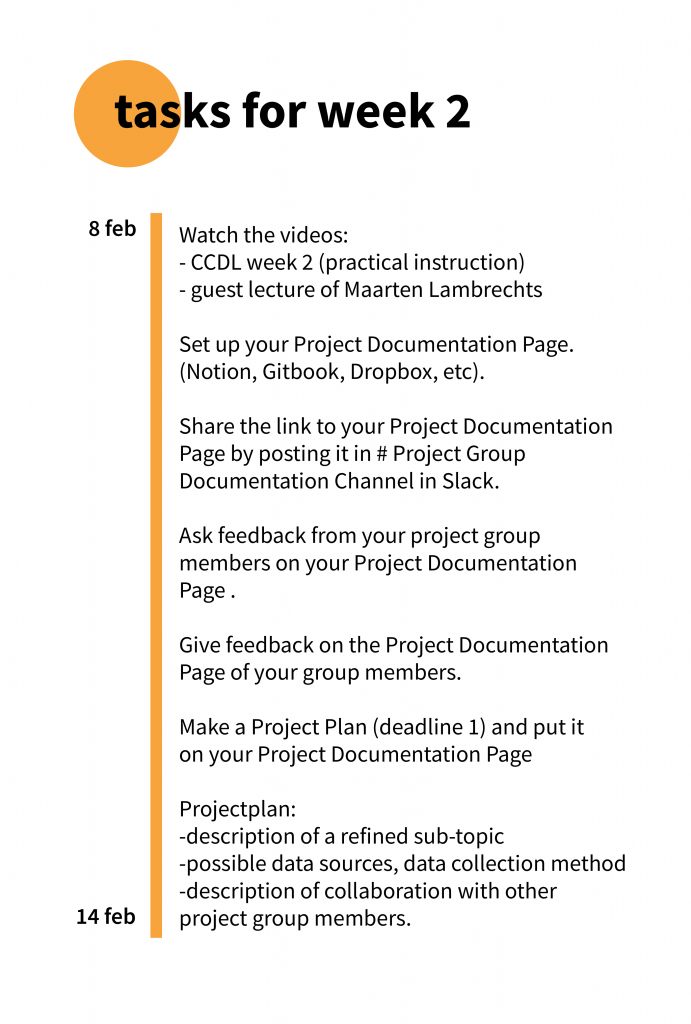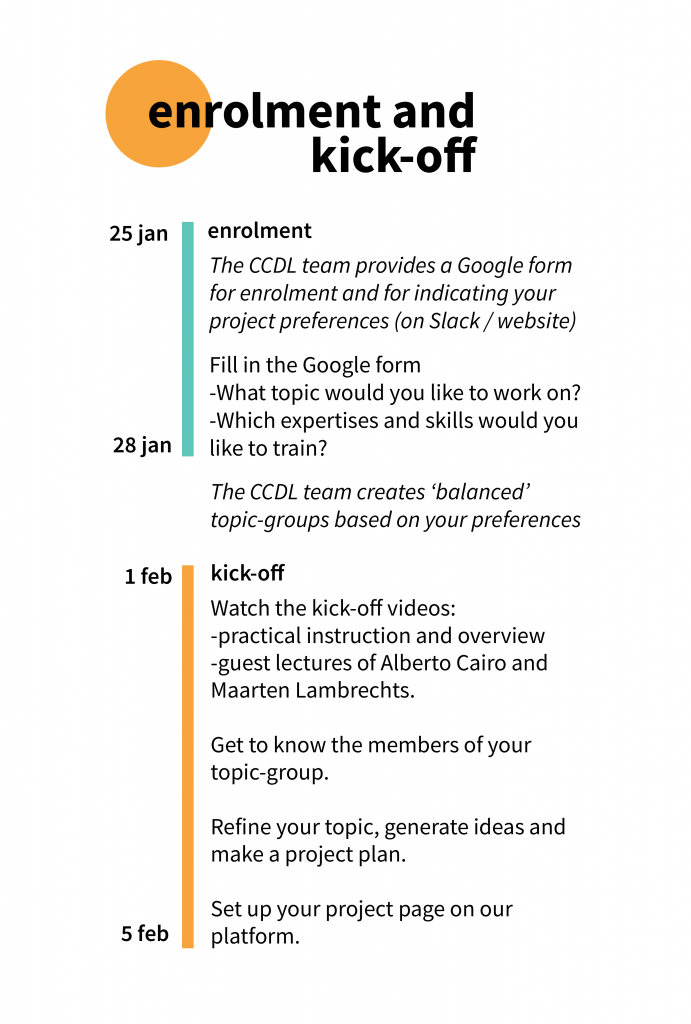Data Collection: desk research and online open data
This week Maaike noticed that Frank sits on a new wobbly chair, which is better for his back, but maybe not appropriate for video recordings 🙈. But let’s focus on this week’s instructions !
We hope you caught up with all the exercises and tasks. We have adjusted the general schedule a bit to give everybody some breathing space. There is a new exercise for you, and Laurens shares how he searches for and collects data on his dog, Rocca 🐶.
So here is our partly wobbly instructional video below:
Your question to fellow students:
https://forms.gle/3sAjcoAXW6skeyys6
Last week’s Exercise
Data Collection Exercise 1 COVID Signs
http://crossculturaldataliteracy.org/2021/03/01/week-5/
Guest Lecture by Laurens Aarnoudse
Finding and Exploring Data:
https://github.com/cross-cultural-data-literacy/2021-good-health-and-wellbeing/blob/main/resources/finding-and-exploring-data.md
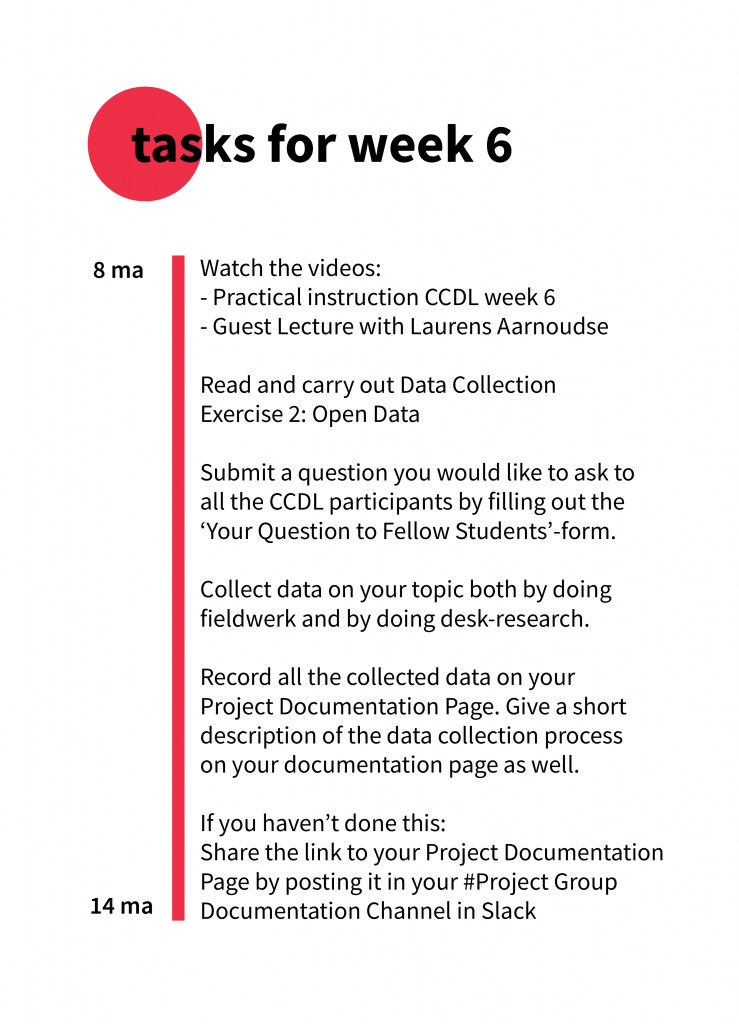
Data Collection Exercise 2: Open Data
– search for datasets on your topic
– share the links to the sources on #data-sources channel on Slack, and write a description
– also put this on your project documentation page (notion, dropbox paper, etc)
Resources and links to data sources:
https://data.unicef.org/topic/child-health/immunization/
https://www.who.int/data/collections
https://ourworldindata.org/covid-vaccinations
https://data.worldbank.org/topic/health
https://centre.humdata.org/
https://data.humdata.org/
https://unstats.un.org/sdgs/indicators/database/
